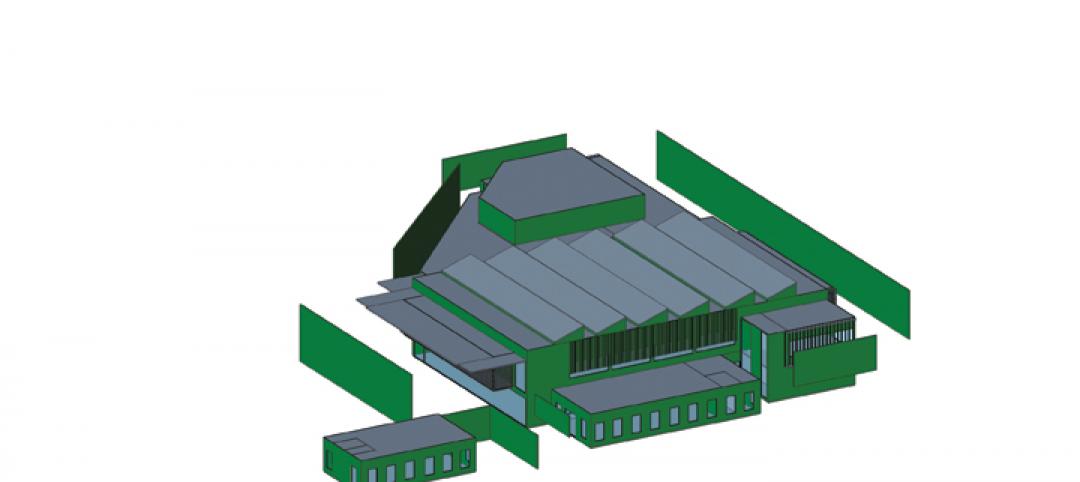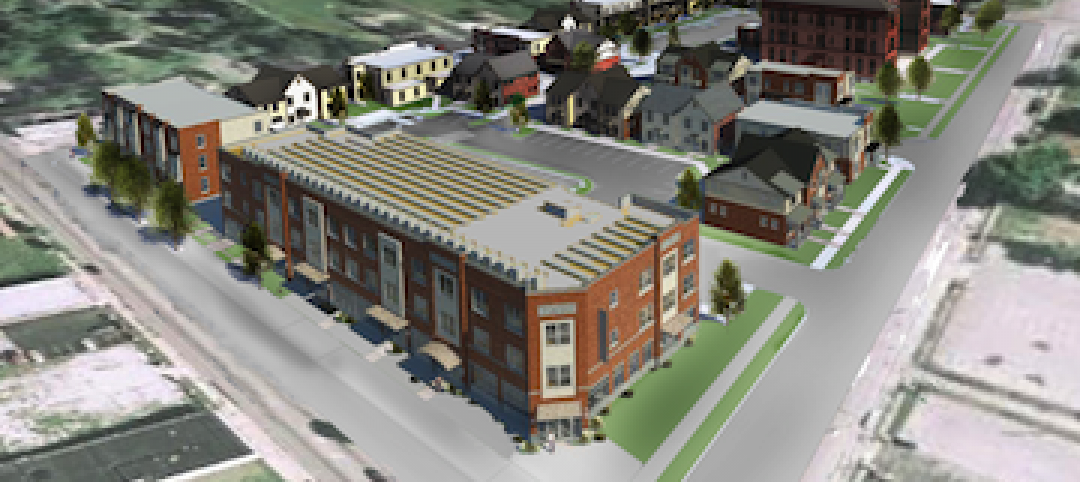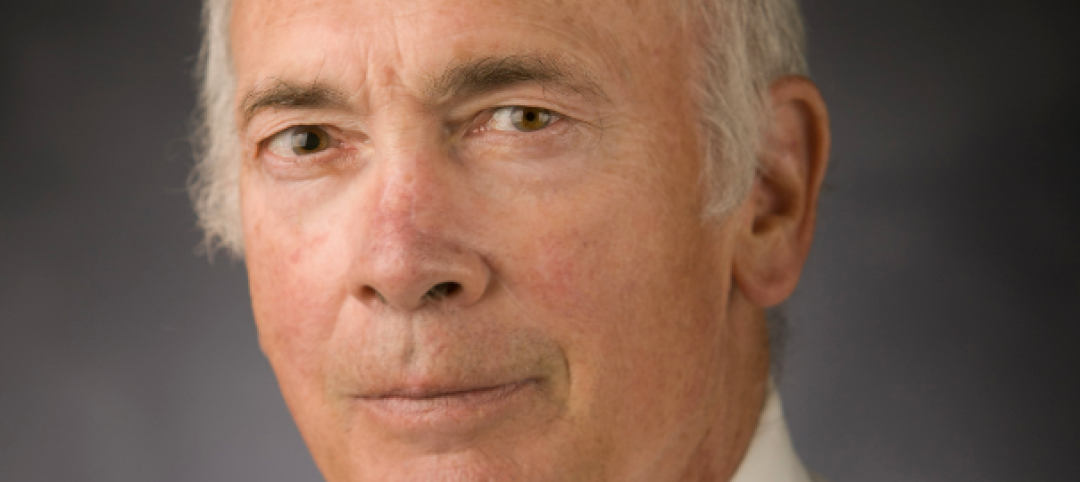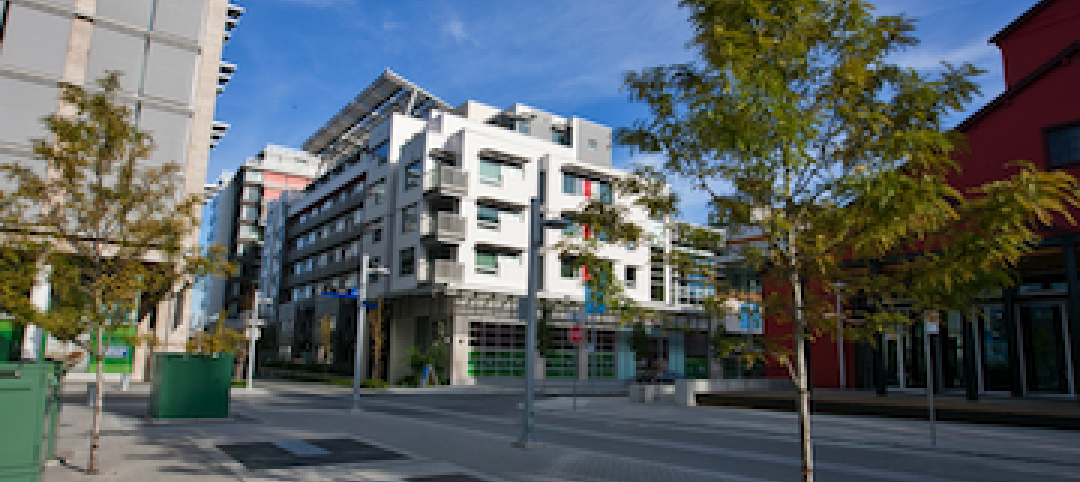Hank Adams, AIA, ACHA, EDAC has been promoted to director of the healthcare program for HDR Architecture. A vice president with the firm, Adams has more than 25 years of healthcare architectural experience and has managed dozens of healthcare projects ranging from complete replacement facilities to multi-phased master plan implementations.
“All of us at HDR are proud of the design creativity, intellectual capital, and hard work that have contributed to building our global design and consulting practice. I am both honored and humbled to be leading the healthcare program; our work is not only a catalyst for change in healthcare delivery, but it impacts the health and well-being of the world,” Adams noted. “As we move forward, my vision for HDR is to be a trusted partner to our healthcare clients. We are helping them successfully navigate through the rapid evolution of modern medicine, economic shifts, and health policy changes toward a sustainable healthcare delivery system that meets the needs of both current and future generations. We’re curious, energized, and prepared to meet this challenge.”
“Hank’s passion for healthcare and his insight into the entire continuum of care made him the natural choice for leading our healthcare program,” said Doug Wignall, AIA, LEED AP, president of HDR Architecture. “His experience provides a unique and comprehensive understanding of the design, management, and technical aspects of complex healthcare projects. He also works diligently to foster an environment that will continue to inspire our skilled and imaginative leaders who are staying one step ahead of the changing paradigm that is 21st-century healthcare.”
Adams has extensive firm leadership experience as a healthcare principal, project manager, healthcare planner, and business developer. As director of HDR’s healthcare program, he provides strategic leadership and overall direction for the program and commits the necessary resources of the firm to successfully complete healthcare projects that embody the firm's clients’ visions and goals. In addition, Adams is an integral member of the design team for the $1.2 billion Parkland replacement hospital project in Dallas, serving as the design manager for the HDR + Corgan Joint Venture Design Team and providing overall leadership and direction to the integrated project delivery team of healthcare design and construction experts.
Adams is based in the firm’s Dallas office. He holds a Bachelor of Architecture degree from Oklahoma State University, and is an active member of the American College of Healthcare Architects (ACHA).
Related Stories
| Nov 2, 2010
Energy Analysis No Longer a Luxury
Back in the halcyon days of 2006, energy analysis of building design and performance was a luxury. Sure, many forward-thinking AEC firms ran their designs through services such as Autodesk’s Green Building Studio and IES’s Virtual Environment, and some facility managers used Honeywell’s Energy Manager and other monitoring software. Today, however, knowing exactly how much energy your building will produce and use is survival of the fittest as energy costs and green design requirements demand precision.
| Nov 2, 2010
Yudelson: ‘If It Doesn’t Perform, It Can’t Be Green’
Jerry Yudelson, prolific author and veteran green building expert, challenges Building Teams to think big when it comes to controlling energy use and reducing carbon emissions in buildings.
| Nov 2, 2010
Historic changes to commercial building energy codes drive energy efficiency, emissions reductions
Revisions to the commercial section of the 2012 International Energy Conservation Code (IECC) represent the largest single-step efficiency increase in the history of the national, model energy. The changes mean that new and renovated buildings constructed in jurisdictions that follow the 2012 IECC will use 30% less energy than those built to current standards.
| Nov 1, 2010
Sustainable, mixed-income housing to revitalize community
The $41 million Arlington Grove mixed-use development in St. Louis is viewed as a major step in revitalizing the community. Developed by McCormack Baron Salazar with KAI Design & Build (architect, MEP, GC), the project will add 112 new and renovated mixed-income rental units (market rate, low-income, and public housing) totaling 162,000 sf, plus 5,000 sf of commercial/retail space.
| Nov 1, 2010
John Pearce: First thing I tell designers: Do your homework!
John Pearce, FAIA, University Architect at Duke University, Durham, N.C., tells BD+C’s Robert Cassidy about the school’s construction plans and sustainability efforts, how to land work at Duke, and why he’s proceeding with caution when it comes to BIM.
| Nov 1, 2010
Vancouver’s former Olympic Village shoots for Gold
The first tenants of the Millennium Water development in Vancouver, B.C., were Olympic athletes competing in the 2010 Winter Games. Now the former Olympic Village, located on a 17-acre brownfield site, is being transformed into a residential neighborhood targeting LEED ND Gold. The buildings are expected to consume 30-70% less energy than comparable structures.
| Oct 27, 2010
Grid-neutral education complex to serve students, community
MVE Institutional designed the Downtown Educational Complex in Oakland, Calif., to serve as an educational facility, community center, and grid-neutral green building. The 123,000-sf complex, now under construction on a 5.5-acre site in the city’s Lake Merritt neighborhood, will be built in two phases, the first expected to be completed in spring 2012 and the second in fall 2014.
| Oct 21, 2010
GSA confirms new LEED Gold requirement
The General Services Administration has increased its sustainability requirements and now mandates LEED Gold for its projects.
| Oct 18, 2010
World’s first zero-carbon city on track in Abu Dhabi
Masdar City, the world’s only zero-carbon city, is on track to be built in Abu Dhabi, with completion expected as early as 2020. Foster + Partners developed the $22 billion city’s master plan, with Adrian Smith + Gordon Gill Architecture, Aedas, and Lava Architects designing buildings for the project’s first phase, which is on track to be ready for occupancy by 2015.














